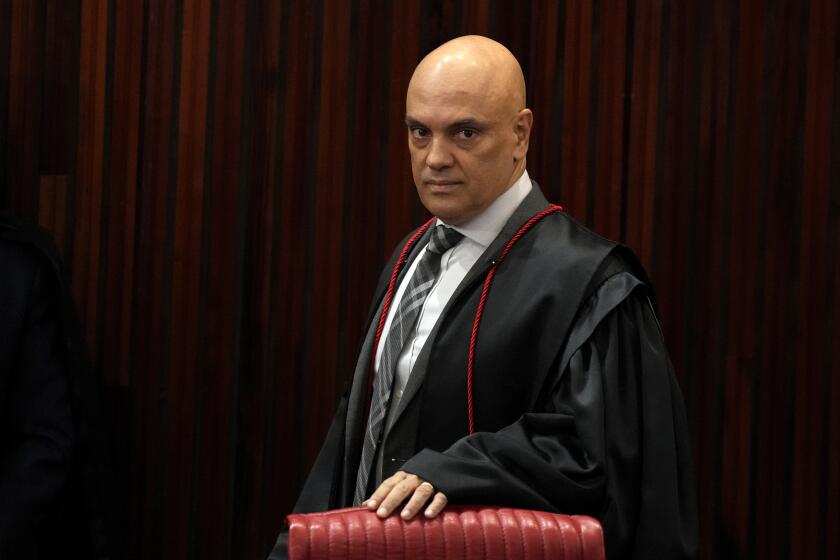New Tax on Domestic Air Travel : Airlines: Federal bill will raise ticket prices from $1 to $3 per person on most U.S. flights sometime next year. The money will help finance airport improvements.
Consumers beware: There’s a new air travel tax on the horizon. It’s called the Passenger Facilitation Charge, or PFC, and it’ll soon be imposed on passengers departing U.S. airports on domestic flights. The purpose is to raise revenue for various airport improvement projects.
Under terms of the Aviation Safety and Capacity Expansion Act of 1990, the Federal Aviation Administration recently began implementing the PFC program. The PFC will show up as a separate entry on passenger ticket receipts. In this case, airports are levying the charges, while airlines (and travel agents) are the collectors.
The PFC will be either $1, $2 or $3 for most domestic flights, depending on what the individual airport elects to charge (and pending FAA approval), with a maximum of two PFCs levied per one-way flight ($6)--regardless of how many stops are made--or four for round-trip flights ($12).
The actual collection of PFCs from consumers isn’t expected to begin at most airports until sometime next spring or summer. Each airport has to provide the FAA with its individual plan on implementing the charge. The FAA then has four months to respond.
Some airports have already begun the process. McCarran International Airport in Las Vegas has taken steps to implement a $3 PFC. If the plan is approved by the FAA, officials at McCarran expect to start levying the tax on passengers sometime between March and June of next year.
The Bush Administration, strongly supported by airport operators, conceived the idea of levying the PFC. Federal funds, the administration believes, are insufficient to finance the needed improvements to the nation’s airports, thus more locally generated revenue had to be found. Opponents argue that the aviation trust fund--which now totals about $7 billion thanks to a domestic aviation tax that began in 1970 and was increased to 10% from 8% last December--should be used to finance airport improvements. Instead, the fat trust fund has been placed in the federal budget to help decrease the national debt.
In spite of considerable opposition in Congress, the bill to lift a ban on passenger taxes was passed last year. That represented the first time that airports have ever been able to impose a tax on passenger tickets.
“The PFC program represents a major step in the effort to increase airport capacity,” said Secretary of Transportation Samuel K. Skinner recently. “U.S. airports could collect more than $1 billion a year in PFC revenues, which could help them meet the growth in air traffic expected in the next decade.”
PFCs will be paid by consumers at the time they purchase their airline tickets. If you make a change in your itinerary after payment, you will be eligible for a refund or an adjustment.
Consumers would face a PFC when flying on foreign airlines that serve the United States if there was a domestic flight segment on their itinerary before reaching the final U.S. destination. If the flight back to the United States was nonstop, consumers would not face a PFC. Foreign airlines may choose to collect the tax when the passenger boards a connecting flight in the United States; some nations don’t want taxes collected on their territory for other countries.
According to terms of the PFC legislation, money generated by the tax must be used for such areas of airport improvement as expansion, safety, security and noise reduction. FAA officials believe that the PFCs, through airport expansion, will give a substantial boost to airline competition in cities.
Some politicians, however, have expressed concern about implementing yet another air travel tax. Domestically, there is the 10% aviation tax and now the PFC tab. On international flights, there is a $6 departure tax, a $5 customs fee and a $5 immigration fee.
Former California Rep. Douglas Bosco (D-Sebastopol), who tried unsuccessfully to kill the PFC provision, argued that it would turn the country’s airports into “taxports.”
In May, a $2 agriculture inspection fee went into effect for passengers arriving in the United States from foreign countries, except Canada. The U.S. Department of Agriculture was scheduled to begin imposing the same $2 tax on passengers traveling from Hawaii and Puerto Rico into the continental United States starting Aug. 1, but that date was recently pushed back to Oct. 1 so Congress could have more time to consider measures to repeal the fee.
Said Ada Brown of Seaside Travel House in Long Beach and president of the Southern California chapter of the American Society of Travel Agents: “At the rate we’re going with listing new taxes, the airlines are going to run out of space on tickets for the standard flight information.”
More to Read
Inside the business of entertainment
The Wide Shot brings you news, analysis and insights on everything from streaming wars to production — and what it all means for the future.
You may occasionally receive promotional content from the Los Angeles Times.






